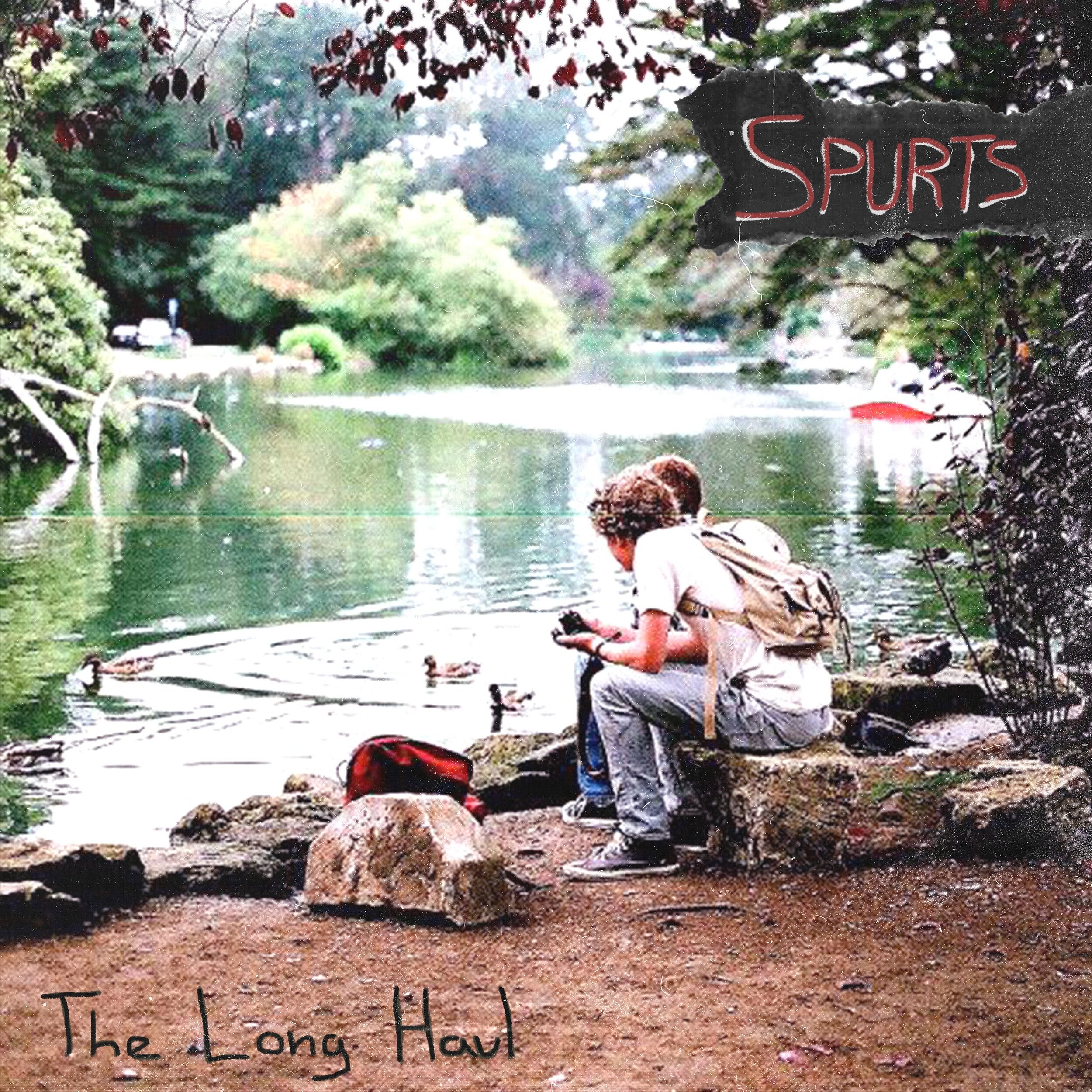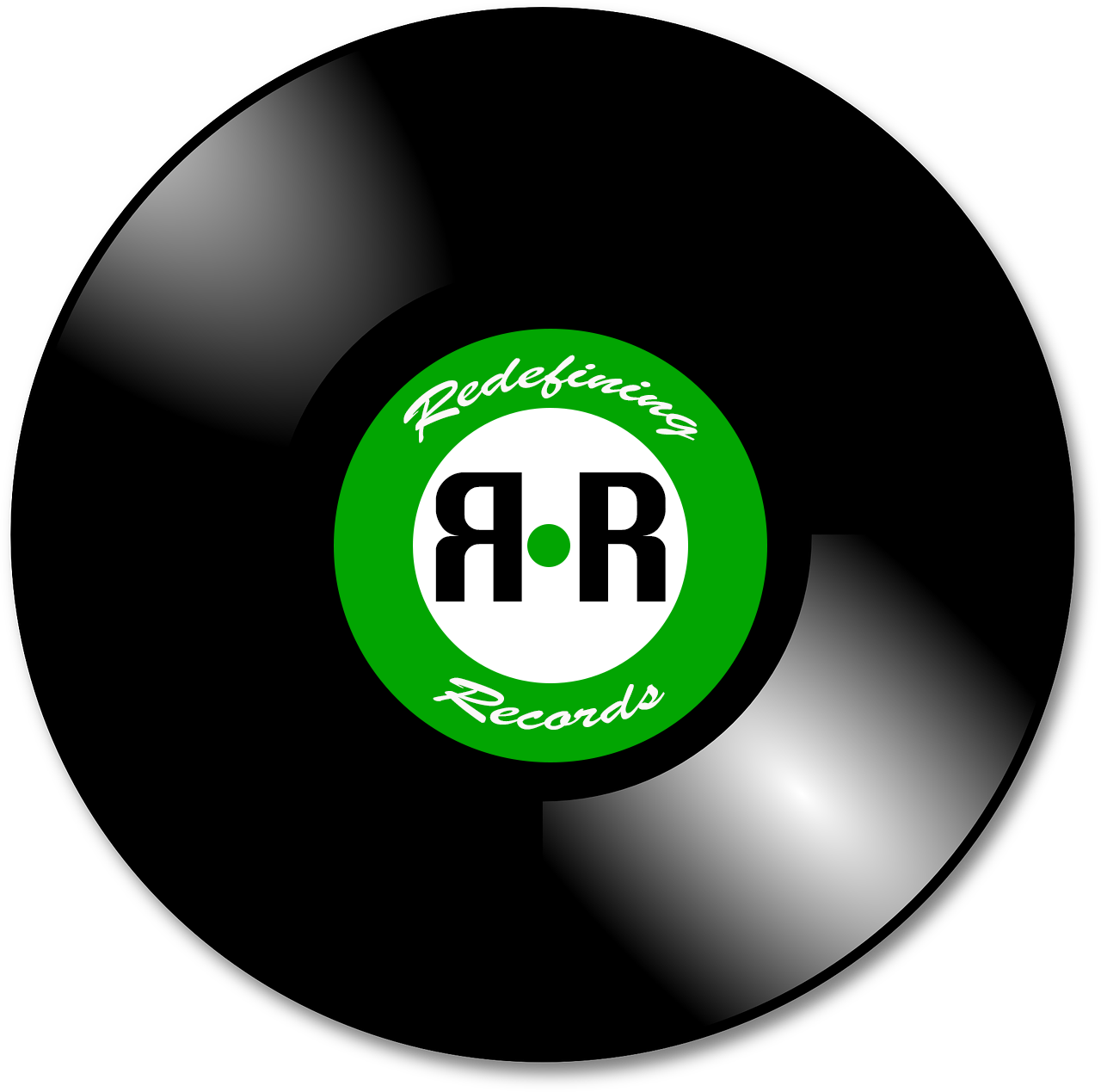The Long Haul

Spurts’ Robert Sanlis talks being “Accidentally Punk”, recording in isolation, and making the music he wants to make.
Robert Sanlis is one of those people who’s never not making music. From his early high school days spent absorbing Oakland’s bubbling punk scene, playing shows at the famed 924 Gillman, to the sweaty masses of DIY house shows during his time at UC Santa Barbara, he’s learned a thing or two about entertaining a crowd. At Gillman, he knew to play his songs twice as fast. In college, he knew to turn up the distortion and replace soft acoustic strumming with louder, faster grooves. He’s always enjoyed keeping crowds content, feeding off their energy, and firing his own back, but early on in our conversation he recalls telling an old bandmate “if we weren’t catering to these college party crowds, we would sound totally different.”
Now four years removed from college, far from his early punk days and the crazy house shows in Santa Barbara, Robert Sanlis is less focused on catering to the crowd. His latest project, Spurts, is a culmination of this newfound musical freedom. “I no longer have to care about what a party full of people thinks of it, so I’m just gonna make the music that I want to make. And I think that’s what Spurts is.”
BUY MUSIC GEAR HERE:
🎵 Support our page and buy GEAR HERE USING OUR AFFILIATE LINK, MAKE YOUR OWN KIND OF MUSIC
Spurts nine-track LP, The Long Haul, is a wonderfully crafted culmination of the last few years of Robert’s life. It's a jumbled assortment of memories, moments, and snapshots, strung together to emphasize just how long the last couple of years have really felt. “Each song is its own world in and of itself. “Track 01” is a hodge-podge of ideas and it’s more of my bandmate, Nathan’s, lyrics. The second track is a song about me having beef with another band in San Francisco. “Slightly Hungover” is just a song about feeling bad. “Sarah’s House” is a song about suddenly feeling old. You know, they’re all their own ecosystem.”
The songs on The Long Haul vary both lyrically and sonically. On “i was in a band in college”, Robert confesses he’s “been treating art like a contest” over a pop-driven acoustic progression. He follows, rather sarcastically, with “so it’s no surprise that you're not having fun yet” before he’s interrupted by a screeching distorted guitar tone. “Sarah’s House” shows off a softer side by tackling the ancient art of coming to terms with getting old and growing up. When asked if there is a central theme to hold these vivid vignettes together, Robert refers back to the album title; “I think there is actually a kind of thread through it all, and the thread is the name, The Long Hall. For the longest time, I had no idea what the name was going to be. The more I thought about it, there’s a lyric in “Track 01”, ‘I think I’m on for the long haul’ and I was like this album, in and of itself, has been one long haul to make. It’s been very painful and it’s not the best recording I’ve ever done but it took me the most time. So, a theme runs through it in that vein. And then, I felt like hey we all in a worldwide sense, have been on for a long haul here, [the pandemic] kept going longer and longer than we thought. It was like buckle down, get comfy, we’re gonna be here for a while. And that just felt timely. So, every song lyrically is in its own world, but I think you could make an argument for them all being about some relationship to the album name.”
He stops for a second to gather his thoughts, laughs, and then leaves one final note on the album's title,
“It’s just, it’s been a couple of shitty years. Here’s some thoughts about ‘em. That’s where we’re at.”
Our conversation is casual, and Robert speaks bluntly about the project. His matter-of-fact tone carries through in his lyrics. “I think I’ve always gravitated towards direct lyrics and that’s a product of me being super into folk-punk when I was younger. I’m a big fan of being blunt in lyrics, I like lyrics that, if people are paying attention… shock the audience.”
Much of the record finds him narrating inner thoughts, candid confessions, and insecurities in a charming way. When I ask him if there was any struggle in achieving that level of vulnerability, he shrugs it off; “It comes fairly naturally to be honest... The kind of music that I have enjoyed the most in my life has always been confessional, to a degree. I do tend to gravitate towards music that is more reflective about whatever is going on in that songwriter's life at the moment. So, I’d say I have adopted that approach to songwriting for the most part.”
While Spurts’ sound has evolved past the early days in Oakland to reflect a softer emphasis on acoustic melodies, you can still hear traces of his punk-rock upbringing throughout the record.“I refer to it as accidentally punk, and I think that moniker can work for a few different reasons. I've never gone to a studio, everything I have ever recorded has just been in my basement, so the DIY ethos is here.”
I’m quickly learning that you can take the artists out of the punk scene, but you can never really take the punk out of the artist as he tells me these tendencies tend to creep in a little more in his live shows; “Seeing me play these songs live is so much different than what they sound like on the record because we take everything probably twice as fast. It's louder. None of the acoustic stuff you hear on the record is actually acoustic at a live show. The stuff I put out on Spurts is noticeably more downbeat, although everything else I’ve ever put out is substantially more distortion and more punk.”
Although The Long Haul marks Spurts first release since 2019’s I’d Rather It Exist Than It Didn’t, these songs are far from new for the band. “The newest song on there is probably like a year and a half old. And that’s because, a year ago, we were touring in 2020 right before the shit hit the fan. And we were touring on this material. So, at that point, it was old stuff, we had toured it, we played it, we knew it and we were ready to record it. So, the plan was to put this album out last summer, and then the world went to hell.”
And while this collection of songs represents a fresh start with a new sound, he admits again that the actual recording process was anything but easy. “Two weeks into quarantine I was like well I need to be somewhat productive, I gotta record this. And it was a pretty painful process because this entire thing was recorded without ever being in a room with any other bandmate. With very few exceptions, this was done entirely in isolation.”
Despite the hurdles that COVID-19 brought, it’s hard for Robert to deny the excitement that comes from the spontaneity he cultivates in his recording process. “I’m a big believer in trying new stuff during the recording process because I think my favorite parts of my songs are always done when we’re recording. I will have the nuts and bolts of a song but when I write songs it's really just me and a few chords on a guitar. Sometimes I bring them to the band, and we can flesh it out a bit more, but the goal of recording has always been, okay we have the nuts and bolts but what can we do to make it cool now? When we first started the recording process, I knew I wanted a big instrumental outro, so I told my drummer, just drum for a bit and get sloppy. If you listen to those drum fills, he does, they’re not entirely on-beat but I didn’t care, I wanted it to get weird at the end.”
As our conversation comes to a close, I reference back to the vulnerability his music facilitates. I’m trying to see if any part of him subscribes to the theory of the struggling artist. Doesn’t your best music come from your deepest low points? Robert doesn’t buy it:
“Certainly not…
I grew up in this mold of just singing what’s on your mind. So, the thing that I would do is sing about what’s troubling you, but I certainly don’t think you have to be struggling to make good art. Some of my favorite music out there is pretty upbeat and isn’t about a troubling soul. I do think fantastic art can come out of a really dark place, but
I don’t think it necessitates it.”
If great music only comes from dark places, then The Long Haul is certainly an exception to the rule. Besides, the guy who sings “It’s a lovely day to ignore the winter.” strikes me as too much of an optimist to ever fixate on life’s low points. Instead, he does the only thing he knows how to do; he writes about them, translating sacred moments, thoughts, and feelings into song. He calls Spurts’ songs downbeat, I call them honest, raw, and refreshing.
So, as the days get a little hotter and the sun gets a little higher, I encourage you to slip inside the mind of Robert Sanlis and see the world through Spurts’ lens. I’m sure you’ll find that The Long Haul has something to offer for just about anyone who’s been a human on planet Earth these last couple of years.



